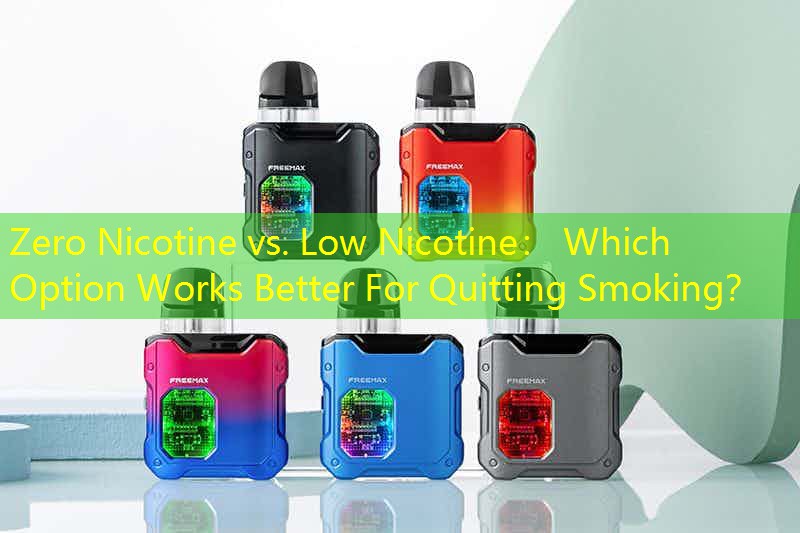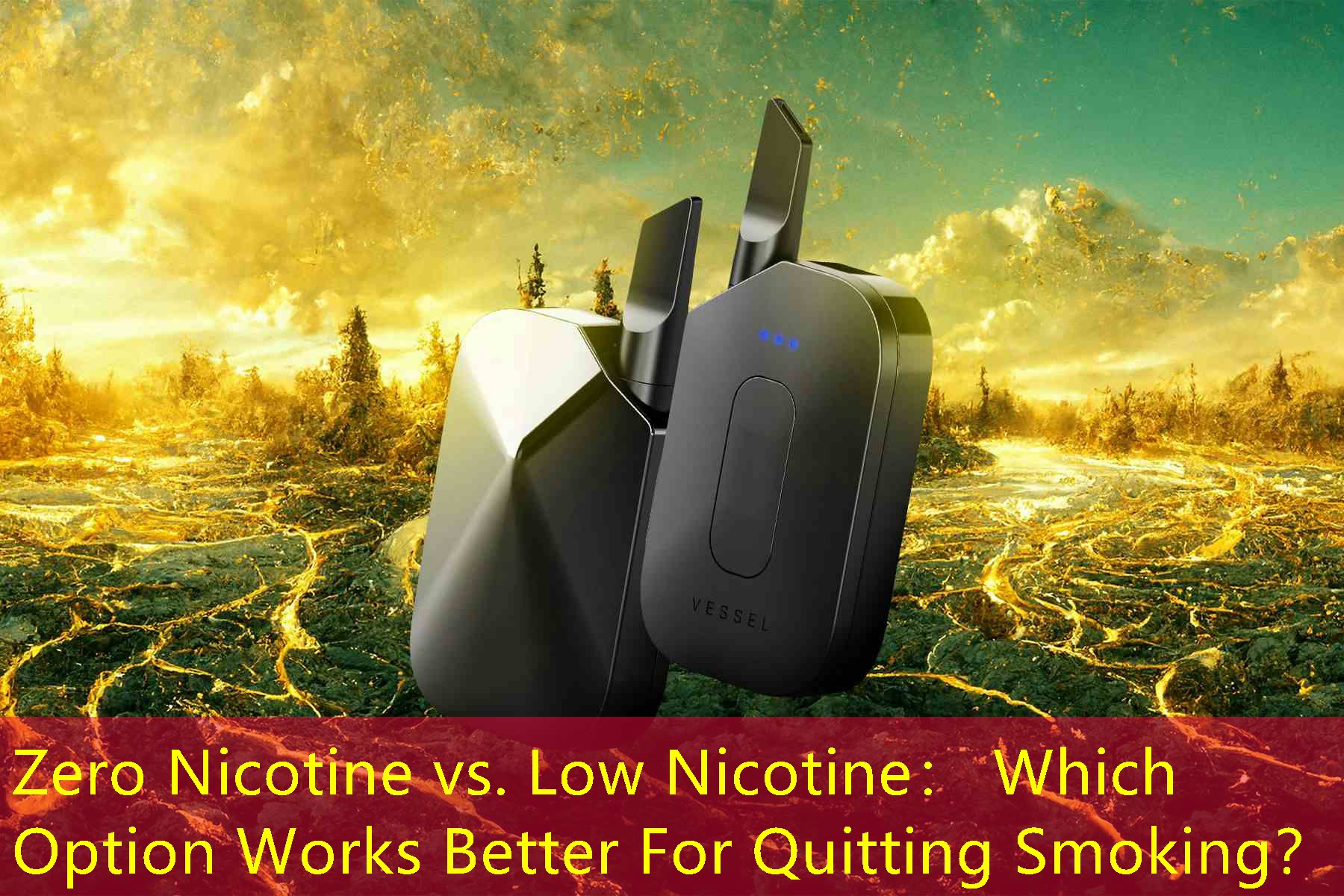Null Nikotin vs. Niedriger Nikotingehalt: Welche Option eignet sich besser, um mit dem Rauchen aufzuhören??

Denken Sie darüber nach, mit dem Rauchen aufzuhören, fühlen sich aber von den Möglichkeiten, die Ihnen zur Verfügung stehen, überfordert?? Da immer mehr Raucher nach Alternativen suchen, Es haben sich zwei beliebte Optionen herauskristallisiert: zero nicotine Und low nicotine Produkte. Ihre Unterschiede verstehen, Vorteile, Und wie sie Ihnen beim Aufhören helfen können, ist für eine fundierte Entscheidung von entscheidender Bedeutung. Dieser Artikel befasst sich mit der Wirksamkeit und Praktikabilität von Produkten ohne oder mit niedrigem Nikotingehalt im Zusammenhang mit der Raucherentwöhnung.
Understanding Zero Nicotine Products
Zero nicotine products, wie bestimmte E-Zigaretten und Dampflösungen, wurden speziell für diejenigen entwickelt, die Nikotin vollständig aus ihrer Routine streichen möchten. Das Ziel hier ist klar: provide a smoking experience without the addictive substance. Users often find that these products help manage the behavioral aspects of smoking, such as hand-to-mouth actions and the habitual aspects associated with lighting up.
One advantage of zero nicotine vaping is the freedom from nicotine addiction. This offers a clear path to breaking the behavioral patterns associated with smoking. Users report that although the physical cravings can be challenging, the absence of nicotine significantly lessens their desire to smoke.
Exploring Low Nicotine Options
Low nicotine products cater to individuals who prefer to gradually reduce their nicotine intake rather than eliminate it entirely. This method allows users to taper their consumption, ideally leading to smaller doses over time. Brands offer a variety of products with differing nicotine levels, accommodating users at various stages of their quitting journey.
The primary benefit of low nicotine products lies in their flexibility. Smokers can maintain some level of nicotine in their systems, potentially easing withdrawal symptoms. Many users find that this gradual reduction makes the transition less abrupt, providing a more comfortable quitting experience.
Vergleichende Analyse: Zero vs. Niedriger Nikotingehalt
To help clarify the differences and advantages of each approach, here’s a comparison table:
| Besonderheit | Zero Nicotine | Niedriger Nikotingehalt |
|---|---|---|
| Nicotine Content | None | Present, but at lower levels |
| Gradual Reduction | Not applicable | Allows for gradual tapering |
| Behavioral Support | Helps break behavioral patterns | Maintains some habitual comfort |
| User Testimonials | Effective for some, but may encounter cravings | Preferred by those needing gradual support |
Which Option is Better for You?
When deciding between zero nicotine Und low nicotine Produkte, it’s crucial to assess your personal quitting needs. Consider your addiction level, previous attempts to quit, and your comfort with both options. Are you ready to cut ties with nicotine completely? Or would you benefit from a gradual reduction?
If you feel confident in your ability to manage cravings, starting with zero nicotine may be the right choice for you. Umgekehrt, if previous attempts at quitting have left you with lingering cravings, then low nicotine products could provide the support you need.
Common Questions About Quitting Smoking with Nicotine Alternatives
Do zero nicotine products mimic the experience of smoking?
Absolut. Many users find that zero nicotine products, especially e-cigarettes, can replicate the physical motions associated with smoking, helping to curb cravings for the action itself.
Are low nicotine products successful for everyone?
Success depends largely on individual preferences and psychological factors. Some users thrive on the gradual reduction method, while others may find quicker success with zero nicotine.
Can switching to these products eliminate my cravings completely?

While both zero and low nicotine options can help with cravings, they may not eliminate them entirely. A comprehensive approach, including behavioral support and lifestyle changes, is often essential for long-term success in quitting smoking.







